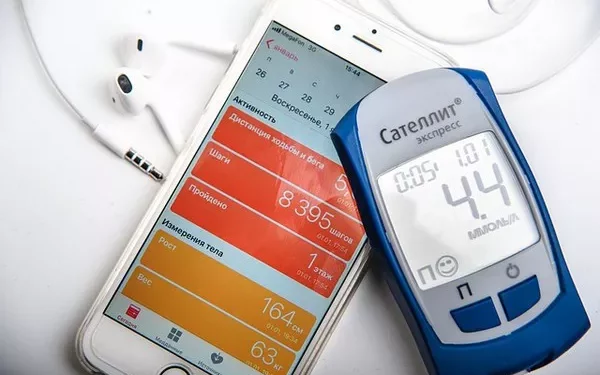Rectorate, UIN News Online — According to the International Diabetes Federation (IDF), the global number of diabetes sufferers reached 537 million in 2021, with projections indicating an increase to 643 million by 2030 and 783 million by 2045. Indonesia ranks fifth among countries with the highest number of diabetes cases, with 19.5 million sufferers in 2021, expected to rise to 28.6 million by 2045. These alarming figures highlight the severe threat of diabetes, particularly for adolescents who face a high risk of serious health complications.
In an interview conducted via WhatsApp on Monday, July 1, 2024, Prof. Dr. Hari Hendarto, Sp.PD-KEMD, MARS, PhD, a Professor of Internal Medicine at the Faculty of Medicine, UIN Syarif Hidayatullah Jakarta, shared his expertise on “The Dangers of Diabetes in Adolescents and Prevention Efforts.”
Prof. Hari emphasized that adolescents with diabetes are highly susceptible to various complications, including heart disease, kidney dysfunction, stroke, vision problems, non-healing wounds, and amputations. The risk of complications increases with the duration of uncontrolled diabetes and the younger the age at diagnosis.
To mitigate these risks, it is crucial for adolescents and their families to understand the causes and prevention of diabetes. Prof. Hari outlined several preventive measures, focusing on healthy lifestyle habits and family support. Key points from his interview include:
Avoiding Unhealthy Habits: Prof. Hari highlighted the importance of avoiding fast food, sugary foods and drinks, smoking, alcohol consumption, being overweight, lack of sleep, high stress levels, and physical inactivity. These factors significantly contribute to the onset of type 2 diabetes in adolescents, making lifestyle changes essential for prevention.
Understanding Insulin Resistance: Type 2 diabetes often results from decreased sensitivity of body cells to insulin, despite normal insulin production. The pancreas works harder to produce enough insulin to maintain normal blood sugar levels, a condition known as insulin resistance.
Maintaining a Healthy Lifestyle: Prof. Hari stressed the necessity of quitting smoking, maintaining an ideal weight, consuming fiber-rich and low glycemic index foods, reducing sugar intake, managing stress, and exercising regularly. Physical activity, such as 30-45 minutes of daily exercise, helps maintain an ideal weight and lower blood sugar levels.
Family Support: For adolescents already diagnosed with diabetes, family support plays a crucial role in disease management. Emotional and social support from family and friends can enhance adherence to treatment plans and motivate adolescents to maintain their health.
Education and Awareness: Educating adolescents about the causes, symptoms, and impacts of diabetes is vital. Early education can raise awareness and encourage preventive measures. Prof. Hari suggested utilizing various platforms, including social media, to disseminate information and promote healthy lifestyles.
Recognizing Symptoms: Adolescents should be aware of diabetes symptoms, which are similar to those in adults. Common symptoms include frequent hunger, excessive thirst, frequent urination, unexplained weight loss, blurred vision, and slow-healing wounds. Early recognition and prompt consultation with a doctor can lead to early diagnosis and treatment, preventing severe complications.
Strategic Awareness Campaigns: Prof. Hari recommended using social media for health campaigns targeting adolescents, employing infographics, videos, and interactive quizzes. Collaboration with schools, youth organizations, and community centers to hold workshops, seminars, and health exhibitions can also enhance awareness.
Youth and Community Involvement: Involving youth and community figures with diabetes experience in awareness campaigns can inspire adolescents to prioritize their health. Regular monitoring and follow-up mechanisms are necessary to evaluate the impact of these campaigns on the younger generation.
In summary, Prof. Hari Hendarto’s insights underscore the importance of early intervention, lifestyle changes, and education in preventing and managing diabetes among adolescents. By fostering a supportive environment and raising awareness, the risk of diabetes complications can be significantly reduced.
Related topics:
Hyundai Pharm Demonstrates Diabetes Drug Efficacy in Phase 2 Trial at ADA Meeting
Diet Intervention, Stricter Glucose Ranges Benefit Gestational Diabetes Mothers and Babies


























